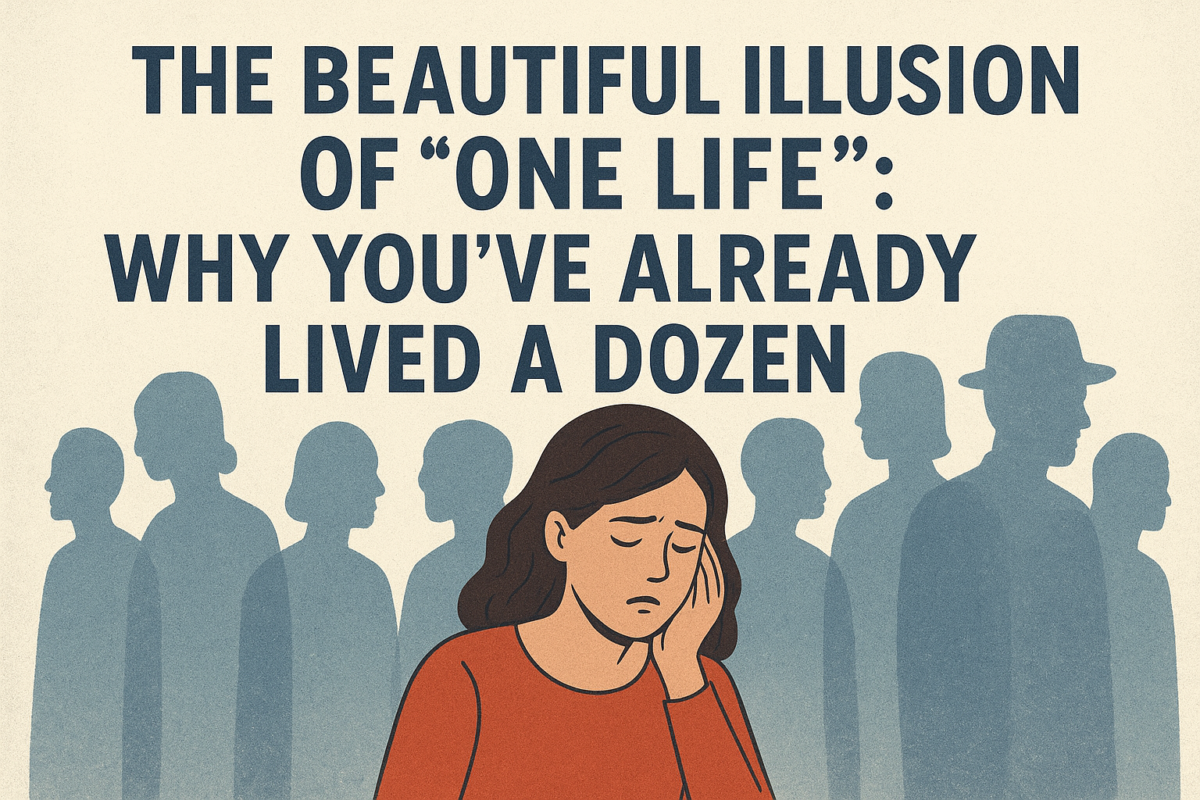“You only live once.” It’s a mantra plastered on bumper stickers and shouted from mountaintops, a rallying cry for seizing the day. But what if that famous phrase is a beautiful, comforting lie? What if, by the time you reach middle age, you haven’t lived one life, but a dozen?The truth is, the person you are today is a stranger to the person you were ten years ago, and a complete mystery to the person you will be ten years from now. We don’t just change over time; we undergo a series of profound, often quiet, identity transformations that amount to living multiple distinct lives within the span of a single lifetime.
The Seven-Year Itch of the Self
The ancient Greeks believed the body completely replaced all its cells every seven years. While modern science has refined this timeline, the metaphor holds a powerful truth for the self. Think back to your life in seven-year increments:
The Student Life (Ages 18-25): Driven by ambition, defined by academic or early career goals, fueled by a boundless, if naive, optimism. Your primary concerns are achievement and belonging.
The Builder Life (Ages 26-33): Focused on establishing a career, a home, and perhaps a family. This life is characterized by responsibility, sacrifice, and the relentless pursuit of stability.
The Questioner Life (Ages 34-41): The initial structure is built, and now the questions begin. Is this all there is? This life is marked by re-evaluation, a search for deeper meaning, and often a significant shift in values or career path.These are not just new chapters; they are new books entirely. Each “life” has its own set of values, its own cast of characters, its own central plot, and its own definition of success. The “you” who was obsessed with climbing the corporate ladder is a different entity from the “you” who now prioritizes quiet mornings and meaningful connection.
The Psychology of the Evolving Self
Psychologists and philosophers have long grappled with the concept of diachronic identity—how a person can remain the “same” person despite radical change. The answer is often that we don’t.We are not a single, monolithic self, but a series of selves connected by a thread of memory and a shared physical body. Each major life event—a career change, a significant relationship ending, becoming a parent, moving to a new country—acts as a chrysalis moment. We enter one person and emerge another, having shed the skin of our former self.
Consider the Caterpillar and the Butterfly metaphor. The caterpillar doesn’t just grow into a butterfly; it completely dissolves itself inside the chrysalis, turning into a kind of biological soup before being reassembled. The butterfly is not a better caterpillar; it is a fundamentally different creature with a new purpose, new abilities, and a new way of interacting with the world.
The Freedom in Letting Go
Recognizing that you have lived multiple lives is incredibly liberating. It frees you from the tyranny of past mistakes and the pressure of future expectations.
1.It grants forgiveness: The mistakes made by the “younger you” were made by a different person, operating with a different set of information and maturity. You can forgive that person and move on, acknowledging their journey without being bound by their errors.
2.It encourages reinvention: The idea that you are stuck on a single path is an illusion. If you are unhappy with your current “life,” you have the power to initiate the next transformation. You can shed the old identity and begin the next life, right now.
3.It fosters appreciation: Look back at the different versions of yourself—the dreamer, the hustler, the caregiver, the adventurer. Appreciate the richness and complexity of the journey. Each life was necessary to bring you to this moment.
So, the next time someone tells you, “You only live once,” smile and nod. But in your heart, know the deeper truth: You live many times. And the most exciting part is that the next life—the next, most fascinating version of you—is just waiting for you to begin.What life are you living right now? And what life are you preparing to live next?
